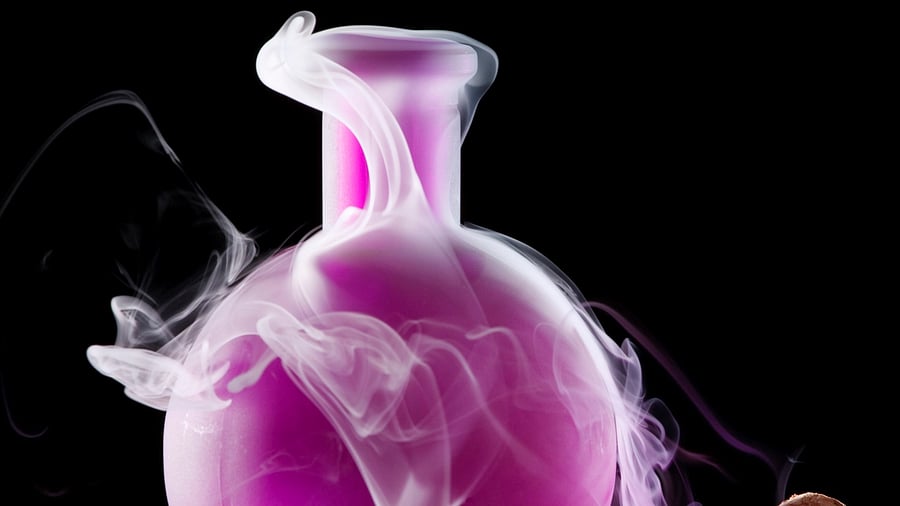
Can ageing be stopped or slowed down? Scientists’ long standing search for an elixir of life has resulted in the discovery of a promising new candidate and three Indian laboratories are part of the breakthrough.
An international team of researchers on Thursday reported that a deficiency of taurine, a nutrient produced in the body and found in many foods, is a driver of ageing and its supplements delay the onset of the ageing process in worms, mice, and monkeys.
After 11 years of experiments and intense studies, the scientists demonstrated how taurine can improve the life-span and several other physiological functions in non-human creatures, paving the way for detailed clinical studies in human beings.
The researchers, however, asserted that it would be premature to consider taurine as the magic anti-ageing agent till extensive clinical trials were carried out. “Trials are a must before taurine supplementation could be recommended for humans," said a team member.
“We are currently in the process of finalising the study design for a placebo controlled randomised multinational clinical trial in middle-aged humans. We would like to have an Indian arm in our clinical trial and are actively looking for clinical partners In India,” Vijay Yadav, a scientist at Columbia University and lead author of the study told DH.
While taurine’s health benefits were known, previous studies were silent on any linkage between blood taurine concentration and ageing. This is the knowledge gap that Yadav and colleagues from multiple institutes in USA, Europe, Australia and India addressed.
CSIR's Central Drug Research Institute, Lucknow; National Institute of Immunology, Delhi and Integral University, Lucknow were part of the team.
“For the last 25 years, scientists have been trying to find factors that not only let us live longer, but also increase the time span we remain healthy in old age,” said Yadav. “This study suggests that taurine can be an elixir of life within us that helps us live longer and healthier lives.”
First, Yadav’s team looked at levels of taurine in the bloodstream of mice, monkeys, and people and found that the taurine abundance decreases substantially with age. In people, taurine levels in 60-year-old individuals were only about one-third of those found in 5-year-olds.
“That’s when we started to ask if taurine deficiency is a driver of the ageing process, and we set up a large experiment with mice,” he said.
The researchers started with close to 250 14-month-old female and male mice (about 45 years old in people terms). Every day, half of the rodents were fed a bolus of taurine and another half a control solution.
At the end of the experiment, it was found that taurine increased average lifespan by 12 per cent in female mice and 10 per cent in males. For the mice that meant three to four extra months, equivalent to about seven or eight human years.
Biologists familiar with the study said while the research revealed taurine’s linkage with increased life-span and health benefits, the chemical’s mechanism of action is poorly understood. Also taurine may not work uniformly in all Animals.
“In fruit flies, taurine increased with age, and higher concentration of taurine supplementation showed reduced fertility and even showed increased lethality. However, lower concentration supplementation did show better health-span. It is an excellent study, but more research needs to be conducted as there are side effects. Also this study contradicts some of the earlier ones,” commented Upendra Nongthomba, professor at the Department of Development Biology and Genetics, Indian Institute of Sciences, Bengaluru, who is not directly involved with the paper.
Yadav’s team claimed they found taurine suppressed age-associated weight gain in female mice (even in “menopausal” mice), increased energy expenditure, enhanced bone mass, improved muscle endurance and strength, reduced depression-like and anxious behaviours, reduced insulin resistance, and promoted a younger-looking immune system, among other benefits.
“A randomized placebo controlled clinical trial is required before supplementation could be recommended in humans. It is an exciting time for ageing research as multiple molecules such as rapamycin, AKG and metformin are going on clinical trials soon. Hopefully the clinical trial for taurine will start soon,” said CDRI scientist Naibedya Chattopadhyay, a team member.
Similar health benefits of taurine supplements were seen in middle-aged rhesus monkeys, which were given daily taurine supplements for six months. Taurine prevented weight gain, reduced fasting blood glucose and markers of liver damage, increased bone density in the spine and legs, and improved the health of their immune systems.
At a cellular level, taurine improved many functions that usually decline with age. The supplement decreased the number of “zombie cells” (old cells that should die but instead linger and release harmful substances), increased survival after telomerase deficiency, augmented the number of stem cells present in some tissues (to help tissues heal after injury), improved the performance of mitochondria, reduced DNA damage, and improved the cells‘ ability to sense nutrients.

